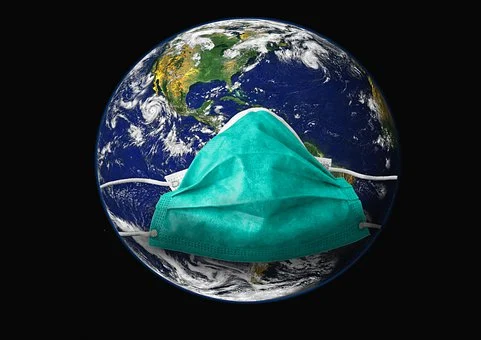Will Covid Ever End?
March 21, 2022
In late March to early April of 2020, schools all across the world shut down. At this time, Covid was extremely dangerous to pretty much everyone, whether it was an immuno-compromised person or not.
Until September of last year, school was remote, and kids had very little opportunities for social interaction among friends, classmates and family.
And even last year, school in Rhinebeck was certainly not normal. School days were cut in half, everyone had to have a mask on their face, and schedules were much more different and confusing.
Obviously, though Covid-19 is still a very relevant thing in our lives, life is a lot different now. For one thing, we’re not in quarantine anymore! Regular extracurricular activities have started up again as well as other concerts, classes and some trips, and school days are the normal length.
That’s not to say that the occurrence of another even more contagious and dangerous variant could appear again, but as of now, Covid is not the most dangerous thing for most people.
Of course, there are still many people who could be negatively affected by Covid if they got it. This group of people includes those with health conditions (such as cancer, asthma and heart failure), younger kids who are unable to get vaccinated, and older people, whose immune systems are more vulnerable.
But for the majority, Covid has become more of a flu than anything.
If someone like me (a 13-year-old girl with a healthy family) were to get Covid, I might get a cough, a runny nose and a fever — normal flu-like symptoms. However, it wouldn’t be detrimental to my health. With 5-7 days of being careful and avoiding spreading it to others, I would most likely be fine.
Other students at BMS/RHS possibly live with their grandparents who are older, a younger sibling who is not vaccinated, or a pregnant mother. Now that the mask mandate has been made optional, many people are wondering whether or not it’s smart to wear theirs if there are immuno-compromised people back at home. The answer is uncertain.
Recent studies from Brown University and the CDC have proven that there isn’t necessarily a large benefit to masks indoors.
While it might be a smart idea to wear one if you are around a high-risk person most of the time, others might not need to be masked after all.
Plus, it is extremely difficult to find exact data on the effectiveness of masks purely because of the many variables. Ventilation, the type and quality of masks, population of the school, and general Covid numbers in the area are all factors that play a part in experiments like these, and it’s just not possible to find accurate data with so many things to plug into the equation.
So whether you decide to mask or not, the most important thing as of now is to get vaccinated.
There has been much misinformation spread about how the vaccine can harm individuals, or about how it’s not worth getting it because it doesn’t prevent you from getting Covid. All these ideas are false.
While it is true that getting the vaccine does not prevent you from getting the virus, the chances of you being heavily impacted by it or dying is around 5 times lower than if you are unvaccinated.
Also, at this point, it is the kind thing to do for others as well, since getting the vaccine protects not only you but the people around you from getting sick.
Obviously, there are so many things scientists still don’t know about the coronavirus. Some say that Covid might continue to be a part of our lives forever, while others say that it might end soon. Whatever the case may be, the CDC and our government scientists will tell us what the best thing to do is.
For the moment, life is looking like it’s returning to the norm once again.
